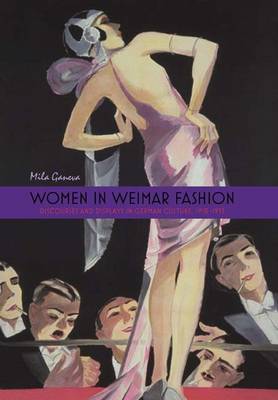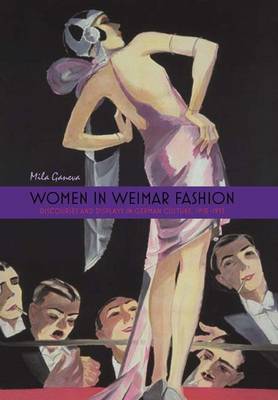
- Afhalen na 1 uur in een winkel met voorraad
- Gratis thuislevering in België vanaf € 30
- Ruim aanbod met 7 miljoen producten
- Afhalen na 1 uur in een winkel met voorraad
- Gratis thuislevering in België vanaf € 30
- Ruim aanbod met 7 miljoen producten
Zoeken
€ 64,95
+ 129 punten
Omschrijving
In the Weimar Republic, fashion was not only manipulated by the various mass media -- film, magazines, advertising, photography, and popular literature -- but also emerged as a powerful medium for women's self-expression. Female writers and journalists, including Helen Grund, Irmgard Keun, Vicki Baum, Elsa Maria Bug, and numerous others engaged in a challenging, self-reflective commentary on current styles. By regularly publishing on these topics in the illustrated press and popular literature, they transformed traditional genres and carved out significant public space for themselves. This book re-evaluates paradigmatic concepts of German modernism such as the flâneur, the Feuilleton, and Neue Sachlichkeit in the light of primary material unearthed in archival research: fashion vignettes, essays, short stories, travelogues, novels, films, documentaries, newsreels, and photographs. Unlike other studies of Weimar culture that have ignored the crucial role of fashion, the book proposes a new genealogy of women's modernity by focusing on the discourse and practice of Weimar fashion, in which the women were transformed from objects of male voyeurism into subjects with complex, ambivalent, and constantly shifting experiences of metropolitan modernity. MILA GANEVA is Associate Professor of German at Miami University, Oxford, Ohio.
Specificaties
Betrokkenen
- Auteur(s):
- Uitgeverij:
Inhoud
- Aantal bladzijden:
- 252
- Taal:
- Engels
- Reeks:
- Reeksnummer:
- nr. 2
Eigenschappen
- Productcode (EAN):
- 9781571135162
- Verschijningsdatum:
- 1/08/2011
- Uitvoering:
- Paperback
- Formaat:
- Trade paperback (VS)
- Afmetingen:
- 152 mm x 229 mm
- Gewicht:
- 344 g

Alleen bij Standaard Boekhandel
+ 129 punten op je klantenkaart van Standaard Boekhandel
Beoordelingen
We publiceren alleen reviews die voldoen aan de voorwaarden voor reviews. Bekijk onze voorwaarden voor reviews.







